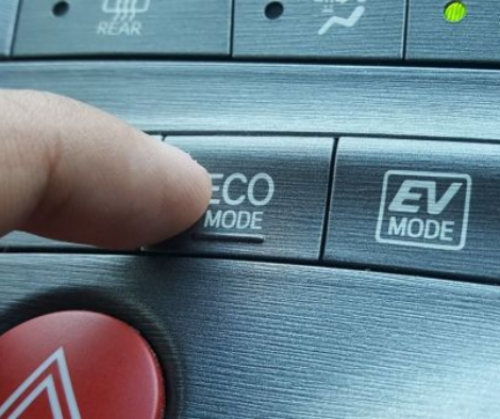
Great Advice & Tips to Cut Your Motoring Costs...
In an ever-changing economic market, everyone is happy to be able to save money on some of the essentials in life. If you're looking for the ideal site to find out all you can about how you can save money and still use your car, MotoringOnABudget is the place for you.

Fuel Economy Tips: How to get more MPG
Once again, the price of fuel has increased, hiking up running costs for drivers. If you're looking to reduce these costs wherever you can, there are a few ways to do so. Like you, we are conscious of the increasing costs and want to help you save where possible.

The most economical cars on the market
When looking for a new car there are many things to consider and depending on what you’re looking for not all models will be suitable to you. This is especially significant for motorists looking for economical cars.
While saving money on your vehicle’s upfront costs is always handy, long-term savings on fuel efficiency is pivotal for those looking to purchase a car with low annual costs.

The best time to get a deal on a new car
When it comes to buying a new car, you want to get the most for your money. While dealerships will have their own offers and discounts running throughout the year, understanding the seasonal trends in the automotive industry will open more opportunities for your next purchase.

6 bad driving habits costing you money
At what cost do you get from A to B, besides the cost of your fuel? When avoiding future maintenance costs, surprise MOT bills and general unsafe driving scenarios, we can all make changes to the way we drive. To minimise wear and tear to your vehicle, we have identified six swift ways to break bad driving habits and avoid big bills further down the road!

Your Guide To The Pros And Cons Of Buying An Ex Demo Car
Are you thinking about treating yourself to a new set of wheels? Perhaps it’s time to splash out on a family SUV to accommodate the little ones. Or maybe they’ve all grown up and flown the nest, and now’s the perfect opportunity to downsize and reward yourself with that sporty model you’ve had your eye on.
Whatever your situation, it makes sense to at least be aware of all the options available to you. When buying a car, most people make a choice between new models and used vehicles. Of course, both have their advantages and disadvantages, but there is a third option that you may not have previously considered.

Your Responsibilities When Selling Your Car
This article offers advice on meeting your responsibilities as a seller when it comes to selling your car.

Best cars with low road tax
If you’re being savvy with your running costs when car budgeting, it’s a good idea to ask, which cars have low or no road tax? With a tempting zero tax introduction on its way this April 2020 for electric company cars, there is no doubt that the demand for affordable electric vehicles is on the rise. But outside of company cars tax changes, all motorists should be mindful when looking for the best cars with low tax to help make their money go the distance.

What Is The Best Way To Sell A Car?
Are you looking for guidance on how to sell your car? Perhaps you’ve decided that you and your loved one can cope with one vehicle between you, or maybe it’s time to shift the motor that’s been sat in the garage for months on end. It could be that you want to freshen things up and go for a newer model.
Whatever your situation, you’re certainly not short of options when it comes to selling your car. In fact, sometimes, the choices can feel a bit overwhelming. You might be happy for a quick sale, as long as there’s someone willing to take it off your hands. Or perhaps, like a lot of people, you want the very best deal for a car that holds plenty of memories.

Are there cheap ways to pay road tax?
Having to pay vehicle excise duty - or to give it it's common name - car tax or road tax, is a necessary evil if you want to drive a car on the road in the UK, or even just keep an vehicle - whether it is used or not - on a public road.

Checklist: What to Look for When Buying a Car
Buying a car is a huge decision. It’s one of the most expensive things we purchase, after property. But with so many options and potential pitfalls, it’s hard to know what to look for. Especially when you’re not a qualified mechanic.

Upgrading a Base Model Car – Is It Worth It?
Whether you’re a keen petrolhead or someone who just needs a way to get from A to B, there’s no doubt that buying a new car provides a certain amount of excitement. That smell of fresh leather is unmistakable, and that’s before you even get comfortable in the driver’s seat and feel the sharp acceleration and smooth steering.
Although there are plenty of positives, there’s a lot to think about too. Even once you’ve identified the make and model, you need to consider which specifications you want to include. Comparing different car models can feel like a daunting process, especially when there’s such a wide range of features for you to choose from.

How to lower your car insurance
Finding a cheap car insurance quote can often be a challenging hunt. With prices constantly fluctuating, it’s unlikely you’ll get the same price the following year with your auto-renewal quote. That is why many motorists are continually searching for ways to help reduce the cost of their car insurance.

Top Tips When Buying a Used Car Privately to Avoid Getting Ripped Off
You’ve spent weeks searching, scoured endless sites before finally finding your perfect car, but there’s a catch – it’s from a private seller. While buying from a dealership offers more buyer protection there are still many advantages to buying a car privately, especially when it comes to attaining your ‘dream car.’
Still, there are a few things to look out for when buying privately and to help you avoid getting a sore deal, we’ve collated all the best tips to consider when buying a used car privately.
DISCOVER MORE
Visit our YouTube channel, where you can find more car reviews and walkarounds by our fantastic experts.



